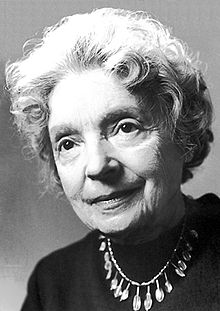
Elias Canetti was a German-language writer, born in Ruse, Bulgaria to a Sephardic Jewish family. They moved to Manchester, England, but his father died in 1912, and his mother took her three sons back to continental Europe. They settled in Vienna.
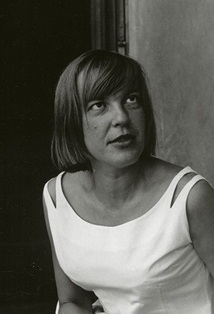
Ingeborg Bachmann was an Austrian poet and author. She is regarded as one of the major voices of German-language literature in the 20th century. In 1963, she was nominated for the Nobel Prize in Literature by German philologist Harald Patzer.
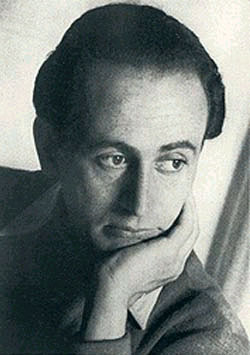
Paul Celan, born Paul Antschel, was a Romanian-born French poet, Holocaust survivor, and literary translator. Celan is regarded as one of the most important figures in German-language literature of the post-World War II era and a poet whose verse has gained an immortal place in the literary pantheon. Celan’s poetry, with its many radical poetic and linguistic innovations, is characterized by a complicated and cryptic style that deviates from poetic conventions.
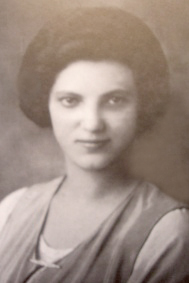
Rose Ausländer was a Jewish poet writing in German and English. Born in Czernowitz in the Bukovina, she lived through its tumultuous history of belonging to the Austro-Hungarian Empire, Kingdom of Romania, and eventually the Soviet Union. Rose Ausländer spent her life in several countries: Austria-Hungary, Romania, the United States, and Germany.
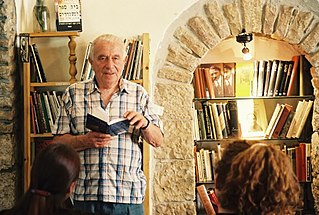
Yehuda Amichai was an Israeli poet and author, one of the first to write in colloquial Hebrew in modern times.
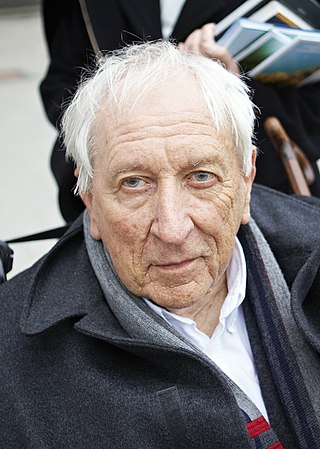
Tomas Gösta Tranströmer was a Swedish poet, psychologist and translator. His poems captured the long Swedish winters, the rhythm of the seasons and the palpable, atmospheric beauty of nature. Tranströmer's work is also characterized by a sense of mystery and wonder underlying the routine of everyday life, a quality which often gives his poems a religious dimension. He has been described as a Christian poet.
The Nelly Sachs Prize is a literary prize given every two years by the German city of Dortmund. Named after the Jewish poet and Nobel laureate Nelly Sachs, the prize includes a cash award of €15,000. It honours authors for outstanding literary contributions to the promotion of understanding between peoples.

Dan Pagis was an Israeli poet, lecturer and Holocaust survivor.

Jewish literature includes works written by Jews on Jewish themes, literary works written in Jewish languages on various themes, and literary works in any language written by Jewish writers. Ancient Jewish literature includes Biblical literature and rabbinic literature. Medieval Jewish literature includes not only rabbinic literature but also ethical literature, philosophical literature, mystical literature, various other forms of prose including history and fiction, and various forms of poetry of both religious and secular varieties. The production of Jewish literature has flowered with the modern emergence of secular Jewish culture. Modern Jewish literature has included Yiddish literature, Judeo-Tat literature, Ladino literature, Hebrew literature, and Jewish American literature.

Hilde Domin is the pseudonym of Hilde Palm, a German lyric poet and writer. She was among the most important German-language poets of her time.
Scandinavian literature or Nordic literature is the literature in the languages of the Nordic countries of Northern Europe. The Nordic countries include Denmark, Finland, Iceland, Norway, Sweden, and Scandinavia's associated autonomous territories. The majority of these nations and regions use North Germanic languages. Although the majority of Finns speak a Uralic language, Finnish history and literature are clearly interrelated with those of both Sweden and Norway who have shared control of various areas and who have substantial Sami populations/influences.
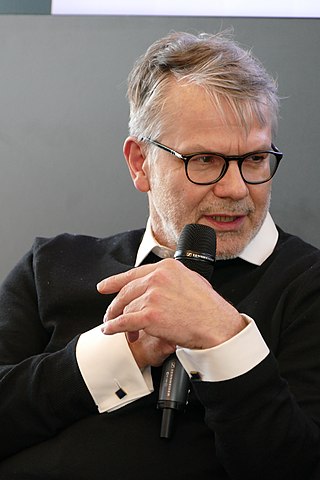
Durs Grünbein is a German poet and essayist.

Friederike Mayröcker was an Austrian writer of poetry and prose, radio plays, children's books and dramatic texts. She experimented with language, and was regarded as an avantgarde poet, and as one of the leading authors in German. Her work, inspired by art, music, literature and everyday life, appeared as "novel and also dense text formations, often described as 'magical'." According to The New York Times, her work was "formally inventive, much of it exploiting the imaginative potential of language to capture the minutiae of daily life, the natural world, love and grief".
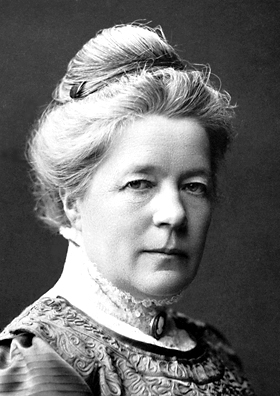
Selma Ottilia Lovisa Lagerlöf was a Swedish writer. She published her first novel, Gösta Berling's Saga, at the age of 33. She was the first woman to win the Nobel Prize in Literature, which she was awarded in 1909. Additionally, she was the first woman to be granted a membership in the Swedish Academy in 1914.
Hermann Karl Lenz was a German writer of poetry, stories, and novels. A major part of his work is a series of nine semi-autobiographical novels centring on his alter ego "Eugen Rapp", a cycle that is also known as the Schwäbische Chronik.

Aris Fioretos is a Swedish writer, translator and scholar of Greek and Austrian extraction who writes in Swedish, German and English. Aside from his own literary career, he is also Professor of Aesthetics at Södertörn University and a member of both the Deutsche Akademie für Sprache und Dichtung and the Akademie der Künste.
Martine Broda was a French poet, literary critic and translator.
Eli, Op. 7, is a German-language opera in three acts with music by Walter Steffens to a libretto based on a play by Nelly Sachs. The world premiere was in 1967 at the Opernhaus Dortmund.

The 1966 Nobel Prize in Literature was divided equally between Shmuel Yosef Agnon (1888–1970) "for his profoundly characteristic narrative art with motifs from the life of the Jewish people" and Nelly Sachs (1891–1970) "for her outstanding lyrical and dramatic writing, which interprets Israel's destiny with touching strength."

The 1906 Nobel Prize in Literature was awarded to the Italian poet Giosuè Carducci (1835–1907) "not only in consideration of his deep learning and critical research, but above all as a tribute to the creative energy, freshness of style, and lyrical force which characterize his poetic masterpieces." He was the first Italian author to receive the prize and was followed by Grazia Deledda in 1926.
